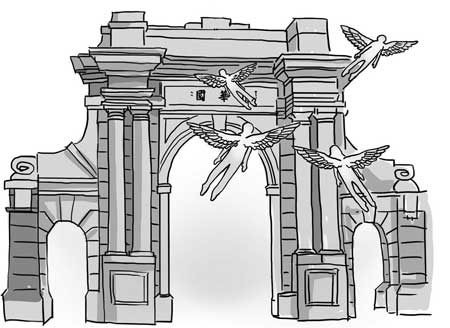Past boasts quietly forgotten at Tsinghua's centennial party

Tsinghua University's 100th anniversary this month marks a milestone – but not a success. In 2001, Tsinghua invited 10,000 international leaders and scholars to a ceremony marking its 90th anniversary, vowing that by the centennial "Tsinghua University would be among the world's premier universities."
A decade later Tsinghua sits anywhere from 36th to 58th place by most international rankings. Respectable, but still far from the Harvards and Oxfords of the world.
Leaping from relative international obscurity to the ranks of the world elite in a decade was a lofty goal to say the least, but lofty is nothing unusual in China. In the country that built a 6,000-kilometer wall and dammed the Yangtze, very little is impossible.
The goal came amid a larger government push around the turn of the century to elevate several Chinese universities to world-class status. They supported the initiative with a 5 percent annual education budget increase and a $14.7 billion World Bank loan.
Unfortunately, education isn't something you can just throw money or manpower at. It's more of a seed that needs to be planted and given the right environment to grow in.
Subjective as they may be, international rankings tend to agree that Tsinghua is doing fine in things money can buy, like the quality of facilities and faculty. Indeed, Tsinghua has a campus full of brilliant professors.
But the assessors also agree on the shortcomings, and Tsinghua has two big ones.
 0
0 






